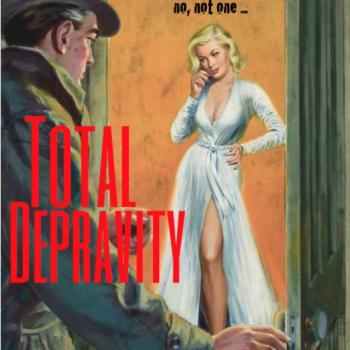Lectionary Reflections
Palm/Passion Sunday
Isaiah 50:4-9a
April 13, 2014
Ok, I know that the vast bulk of you clergy are not going to emphasize the Passion side of Palm/Passion Sunday. After all, there is that kid's parade to think about, all those "Hosannas" to shout, all those palm branches to wave. And you just have to sing, "Hosanna, Loud Hosanna, the Little Children Sang." Talk of Passion and torture and humiliation and death is definitely a downer on what nearly all call Palm Sunday.
Well, I guess I have a burr in my saddle today, or an especially rough blanket on my mount might be the better metaphor. I really want to talk about all that suffering, and if you think me weird or bizarre or downright masochistic, then so be it. I have a confession to make, which I suppose is the Lenten thing to do. I have always been terribly uncomfortable with the Holy Week thing, including all those Easter trumpets and shouting and nice clothes and hoopla extraordinaire. There I have said it; I feel so much better, but I doubt you do.
I have long felt that many of us celebrate the wrong bit during Holy Week, all that trauma, all that blood, all those nails and crowns and whippings and rejection and denial. All that. It has been for me the wrong end of the stick, the butt end of the sword, the handle side of the hammer. And that Mel Gibson cartoonish, "Braveheart" in sheets, "The Passion of the Christ," makes my point and sets my teeth on edge. If you saw that abominable film—and if you have not, don't bother—it was about all that. Jesus the victim, Jesus the martyr, Jesus the punching bag of the Romans, the scapegoat of the Jews, the horrifically abused and assaulted featured star of an unwatchable blood-fest. And to top it all off, Mel himself put his own hand in the scene where the nails were pounded into the hands on the cross, so that he could state cinematically that he was responsible for his death and that all of us are, too.
Holy Week is not about blood lust, but I have to admit that I have more than once in my church life participated in just that. There was the time in a darkened sanctuary where all the congregants were invited to come forward and drive a nail into an old rugged cross, while I sang "The Old Rugged Cross" and "Were You There?" And there was the time when after the last candle was snuffed by the last dark-robed disciple, the pastor intoned, "Christ is dead; let us not pray." Dramatic? Without doubt. What I need to think about? I am not so sure.
I know the tradition has led us all down this trail with the hymns and the anthems and the darkest Bach organ pieces one can play. And I know that Isaiah has been appropriated as the signal metaphor maker to buoy all of this up. But this Holy Week I would like to ask, just what do we suppose 6th century B.C.E. Isaiah may have had in mind when he wrote those now infamous servant songs to the exiles of Israel in Babylon? And what might some thoughts about that affect how we do the whole Holy Week affair?
I wish to focus some attention on Is 50:4-9a, the text for Passion/Palm Sunday and Is 52:13-53:12, the text for Good Friday. These are Isaiah's third and fourth songs of the Servant, of the four that he wrote. Each of the four offers important clues about the identity of the servant, a source of vast scholarly discussion, and about what difference that identity and that person's purpose make for our worship during Holy Week. In the first song of the servant, Isaiah tells us "YHWH's spirit is on him so that he will bring forth justice to the nations" (Is 42:1). Then the second song delineates more precisely what this servant will do: "I will give you as a light to the nations, that my salvation shall reach to the ends of the earth." The servant's call for justice has no boundaries; YHWH bids him to enlighten the whole earth, all the nations, with God's justice.
Song three, the text for Passion Sunday, makes a very sharp turn, as it begins to ask the question: just how is the servant to make this justice to the nations possible? It is here that I think Isaiah offers to the world something crucially important, but his amazing insight has too often been swallowed up in the blood and torture thing I mentioned above. I believe that the prophet looked at the world of the exiles and saw there not even a smidgen of a hope that Israel, or even a remnant of Israel, either of which must be the servant he had in mind, had any chance to bring justice to the nations in the usual ways of power. Power to demand change, power to insist on change, is exactly what Babylonian exiles had nothing of. There must be a better way to bring YHWH's justice to the earth. And then it came to him: only through full sacrifice and giving could God's justice be seen at last and forever.
Hence, Is 50:6: "I gave my back to those who struck me, my cheeks to those who tore out my beard. I did not hide my face from insult and spitting." Each of these human assaults usually demands revenge, getting even. You hit me and I will hit you back. Tear out my beard in order to humiliate me and wound me demands that I strike back. Spit at me, as if I were some loathsome camel, and I will never forget the public slight. But Isaiah says that is how the servant of YHWH will be, and the result of his refusal to retaliate will bring justice to the earth.





